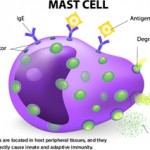Because our patients are disproportionately from minoritized and marginalized communities, we need to better understand and reclaim the immunology that is going on within their very own bodies. Although most practicing rheumatologists don’t engage in basic science research, we contribute to conceptions, and occasionally misconceptions, of immunology as it relates to people from vulnerable communities. Ensuring that we, as practitioners, acknowledge the limitations of immunology is advisable so we can provide the best quality care for them.
Of course there are so many other reasons for my fellow rheumatologists to pick up a review article on immunology. Whatever reason you may pick, the point remains the same—without a core understanding of why we see rheumatologic diseases and how we can target them, we are not fully rheumatologists and we are not living up to our potential as healers for patients with complex immune derangements.
Even a superficial curiosity into the workings of the immune system may deepen your respect for all the different diseases and treatments that we are exposed to. And, in the process, you may discover that everyday immunology may lead to mystery and adventure that you previously thought were unimaginable.
Going back to what Student Doctor Bharat Kumar scribbled on the margins of his notebook in 2007, what exactly is immunology good for? The now-Doctor Kumar can answer that: Learning immunology is good for the soul, to keep you feeling like a student in search of truth and knowledge, no matter how distanced you are from a lecture hall or laboratory.
 Bharat Kumar, MD, MME, FACP, FAAAAI, RhMSUS, is the director of the rheumatology fellowship training program at the University of Iowa, Iowa City, and the physician editor of The Rheumatologist. Follow him on X @BharatKumarMD.
Bharat Kumar, MD, MME, FACP, FAAAAI, RhMSUS, is the director of the rheumatology fellowship training program at the University of Iowa, Iowa City, and the physician editor of The Rheumatologist. Follow him on X @BharatKumarMD.
References
- Del Buono MG, Bonaventura A, Vecchié A, et al. Pathogenic pathways and therapeutic targets of inflammation in heart diseases: A focus on Interleukin-1. Eur J Clin Invest. 2023 Oct 14.
- Boytsov N, Zhang X, Evans KA, Johnson BH. Impact of plan-level access restrictions on effectiveness of biologics among patients with rheumatoid or psoriatic arthritis. Pharmacoecon Open. 2020 Mar;4(1):105–117.
- Polivka L, Frenzel L, Jouzeau JY, et al. Mast cells in spondyloarthritis, more than simple inflammatory bystanders? Ther Adv Musculoskelet Dis. 2020 Nov 16;12:1759720X20971907.
- Kaufmann SHE. Immunology’s coming of age. Front Immunol. 2019 Apr 3;10:684.


